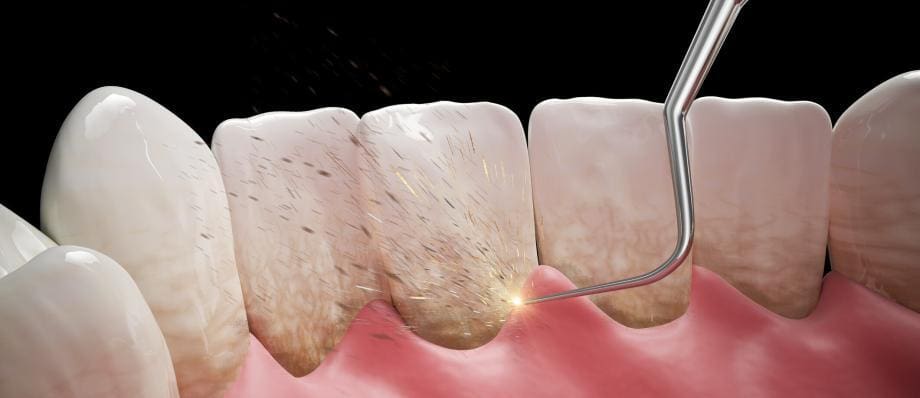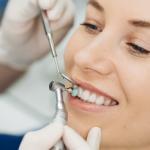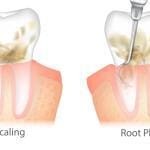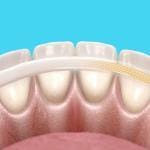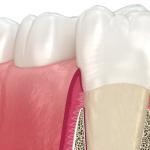Oral health is an essential aspect of overall well-being, and maintaining healthy teeth is crucial for a confident smile and optimal functionality. However, various oral health issues can arise, and one common problem that affects many people is the buildup of tooth calculus, also known as tartar. In this comprehensive article, we will delve into the world of tooth calculus, exploring its causes, effects on oral health, methods of prevention, and the importance of professional removal. Understanding this dental concern can empower individuals to take proactive steps towards preserving their oral health.
What is Tooth Calculus (Tartar)?
Tooth calculus, or tartar, is a mineralized deposit that forms on the surface of teeth. It develops when plaque, a sticky biofilm of bacteria and food particles, is not adequately removed through regular oral hygiene practices like brushing and flossing. Over time, the mineral content in saliva causes plaque to harden and become tartar. Unlike plaque, which is soft and can be removed with proper dental hygiene, tartar is hard and firmly adheres to tooth enamel and below the gum line.
Causes of Tooth Calculus (Tartar) Formation
Several factors contribute to the formation of tooth calculus:
- Poor Oral Hygiene
- Diet
- Salivary Composition
- Dry Mouth
Poor Oral Hygiene
Inadequate brushing and flossing allow plaque to accumulate on teeth. As plaque remains on the teeth for an extended period, it mineralizes and turns into tartar.
Diet
Consuming a diet high in sugary and starchy foods can promote the growth of plaque, increasing the risk of tartar formation.
Salivary Composition
Some individuals have a higher concentration of minerals in their saliva, making them more prone to tartar formation.
Dry Mouth
Reduced salivary flow due to certain medications or medical conditions can create an environment conducive to plaque buildup and, subsequently, tartar formation.
Effects of Tooth Calculus (Tartar) on Oral Health
The presence of tooth calculus can lead to various oral health issues, including:
- Gum Disease
- Periodontitis
- Bad Breath (Halitosis)
- Tooth Discoloration
- Dental Cavities
Gum Disease
Tartar buildup can irritate the gums, leading to gingivitis, an early stage of gum disease characterized by red, swollen, and bleeding gums.
Periodontitis
If left untreated, gingivitis can progress to periodontitis, a severe form of gum disease. Periodontitis involves the destruction of the gum tissues and underlying bone, leading to tooth loss.
Bad Breath (Halitosis)
Tartar can harbor bacteria that produce foul-smelling compounds, resulting in persistent bad breath.
Tooth Discoloration
The brownish or yellowish appearance of tartar can stain the teeth, affecting the aesthetic appeal of one’s smile.
Read more about Tooth Discoloration
Dental Cavities
Tartar can create a rough surface on teeth, promoting the accumulation of plaque and bacteria, increasing the risk of dental cavities.
Prevention of Tooth Calculus (Tartar) Formation
Preventing tartar buildup is crucial for maintaining good oral health. Here are some preventive measures to consider:
- Brushing
- Flossing
- Balanced Diet
- Dental Check-ups
- Mouthwash
- Quit Smoking
Brushing
Regular brushing, at least twice a day, with a fluoride toothpaste helps remove plaque, preventing its mineralization into tartar.
Flossing
Flossing daily helps clean the areas between teeth where plaque can accumulate.
Balanced Diet
Limiting sugary and starchy foods reduces the food source for bacteria, thus lowering the risk of plaque formation.
Dental Check-ups
Regular visits to the dentist for professional cleanings and check-ups can help identify and address tartar buildup at its early stages.
Mouthwash
Using an antiseptic mouthwash can reduce bacteria in the mouth, complementing brushing and flossing.
Quit Smoking
Smoking increases the risk of tartar formation and gum disease, so quitting can significantly benefit oral health.
Professional Removal of Tooth Calculus (Tartar)
Even with a robust oral hygiene routine, some tartar may still accumulate over time. In such cases, professional removal becomes necessary. Dentists and dental hygienists use specialized tools to remove tartar, a procedure known as scaling. This process involves scraping the tartar from the tooth surfaces, both above and below the gum line. In some cases, ultrasonic scalers or laser devices may be used to aid in the removal process. The procedure is usually painless, though patients may experience mild sensitivity or discomfort.
Home Remedies for Tartar Removal
While professional scaling is the most effective way to remove tartar, some home remedies are often promoted as potential aids in tartar removal. It is important to note that these methods are not a substitute for professional dental care, and their efficacy may vary:
- Baking Soda
- Oil Pulling
- Apple Cider Vinegar
Baking Soda
Some people use baking soda mixed with water to brush their teeth, as it may help reduce tartar and plaque due to its mild abrasive properties.
Oil Pulling
Oil pulling involves swishing oil (e.g., coconut oil) around the mouth for several minutes, which proponents claim can help remove toxins, including tartar. However, scientific evidence supporting this claim is limited.
Apple Cider Vinegar
Some individuals use apple cider vinegar as a mouthwash, believing its acidic nature can dissolve tartar. However, its use may erode tooth enamel, so caution is advised.
Complications and Risks of Untreated Tooth Calculus
If tooth calculus (tartar) is left untreated, it can lead to more severe oral health complications. Here are some potential risks associated with untreated tooth calculus:
- Advanced Gum Disease
- Tooth Mobility
- Abscess Formation
- Systemic Health Implications
Advanced Gum Disease
As tartar buildup continues, it can cause the gums to recede and create deep pockets between the gums and teeth. These pockets become breeding grounds for bacteria, leading to advanced periodontal disease. The destruction of gum tissues and underlying bone can eventually lead to tooth loss.
Tooth Mobility
As periodontal disease progresses, the supporting structures of the teeth weaken, causing the teeth to become loose or mobile. Severe mobility can impact eating and speaking, affecting overall quality of life.
Abscess Formation
Tartar and plaque can create an environment where bacteria can thrive, leading to the formation of dental abscesses. These painful infections may require immediate dental intervention.
Systemic Health Implications
Emerging research suggests a link between gum disease and various systemic health issues, including cardiovascular disease, diabetes, respiratory infections, and adverse pregnancy outcomes. Managing tartar buildup can potentially contribute to overall health and well-being.
Special Considerations for High-Risk Individuals
Certain individuals may have a higher risk of developing tooth calculus due to specific factors:
- Age
- Dry Mouth (Xerostomia)
- Smokers
- Braces or Dental Appliances
- Genetic Predisposition
Age
Older adults may experience a decline in saliva production, making them more susceptible to tartar formation.
Dry Mouth (Xerostomia)
Individuals with dry mouth, whether due to medications, medical conditions, or radiation therapy, face an increased risk of tartar accumulation.
Smokers
Smoking not only increases the risk of tartar formation but also hampers the body’s ability to fight gum disease, leading to more severe oral health problems.
Braces or Dental Appliances
Orthodontic devices can make it challenging to clean teeth properly, leading to increased plaque and tartar buildup.
Genetic Predisposition
Some individuals may have a genetic predisposition to produce more tartar, making regular dental check-ups and cleanings even more critical.
Role of Dental Professionals in Oral Health Maintenance
Dental professionals play a crucial role in helping individuals maintain optimal oral health and prevent or manage tooth calculus. Regular dental check-ups enable dentists to detect early signs of tartar buildup and provide personalized recommendations for oral care.
During routine dental visits, dental hygienists perform professional cleanings to remove tartar and plaque from teeth surfaces. They also educate patients on proper oral hygiene techniques and offer advice on lifestyle modifications to improve oral health.
Conclusion: Empowering a Lifelong Commitment to Oral Health
Tooth calculus, or tartar, is a common dental concern that can have significant consequences if left unaddressed. Fortunately, with proper understanding and preventive measures, individuals can reduce the risk of tartar formation and maintain excellent oral health.
A proactive approach to oral care involves adopting good oral hygiene practices, including regular brushing and flossing, limiting sugary foods, and attending routine dental check-ups. In addition to at-home care, professional dental cleanings are crucial for removing tartar and preventing its progression into more severe oral health issues.
As scientific research continues to explore the relationship between oral health and overall well-being, the importance of maintaining healthy teeth and gums becomes even more apparent. A lifelong commitment to oral health can lead to a confident smile, better overall health, and a higher quality of life. By understanding tooth calculus and its impact, individuals can take charge of their oral health journey and work towards a future with bright, healthy smiles.
Remember, dental care is a partnership between individuals and dental professionals. By combining personal commitment with regular dental visits, we can pave the way for a lifetime of optimal oral health and well-being.

